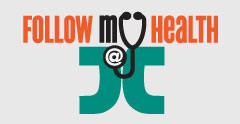Breast Cancer: Facts for Life
What you need to know
Can I prevent breast cancer?
The causes of breast cancer are not fully understood. Although it is clear that age, gender and lifetime exposure to estrogen and other factors play an important role. Because no one knows exactly what causes breast cancer, there are no sure ways to prevent it. However, there are steps that you can take that may reduce your risk. These include maintaining a healthy weight, adding exercise to your routine, limiting alcohol intake and postmenopausal hormones, and breastfeeding if you can. For women at higher risk, tamoxifen or raloxifene may be taken to reduce the risk of cancer.
Who gets breast cancer?
Anyone can get breast cancer. For example, did you know...
- The older a woman, the more likely she is to get breast cancer?
- Young women can and do get breast cancer, even in their 20s?
- White women are more likely to get breast cancer than women of any other racial or ethnic group?
- African American women are more likely to die from breast cancer than white women?
- Men can get breast cancer? Out of every 100 cases of breast cancer, one will occure in a man.
Am I at risk for breast cancer?
All women are at risk for breast cancer. Known risk factors like having a family history of breast cancer, starting menopause after age 55 or never having children account for only a small number of new breast cancer cases every year.
That means that most women who get breast cancer have no known risk factors except being a woman and getting older.
I have a family history of breast cancer. Does that mean I'll develope breast cancer, too?
Just because other family members have had breast cancer doesn't mean that their disease was inherited. In the U.S. only 5% to 10% of all breast cancers occur because of inherited mutations.
If I am diagnosed with breast cancer, what are my chances of surviving?
In general, pretty good. The 5-year survival rate for all women diagnosed with breast cancer is 90%. Most will have a full live and never have a recurrence. Your chances of survival are better if the cancer is detected early, before it spreads to other parts of your body. In fact, when breast cancer is found early and confined to the breast, the 5-year survival rate is 98%. That is why it is so important to take steps to detect breast cancer in its earliest stages.
Your best defense
The best way to find breast cancer early is to get screened. Talk to your health care provider about what screening tests are right for you.
A mammogram is an X-ray of the breast. It is the best screening tool used today to find breast cancer early. A mammogram can find cancer in its earliest stages, even before a lump can be felt. All women age 40 and older should have a mammogram every year. If you are younger than age 40 with either a family history of breast cancer or other concerns, talk with your health care provider about when to start getting mammograms or other screening tests, like MRI and how often to have them.
A clinical breast exam is done by a health care provider who checks your breasts and underarm areas for any lumps or changes. Many woman have a clinical breast exam when they get their Pap test. Women should have a clinical breast exam at least every three years between the ages of 20 and 39 and every year starting at age 40.
Make your appointment to get screened today by calling 731.422.0213.
Source: Susan G. Komen for the Cure, American Cancer Society
